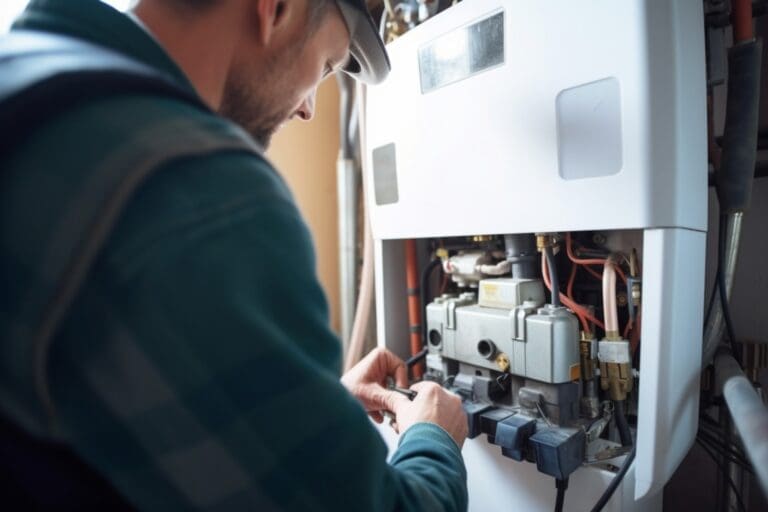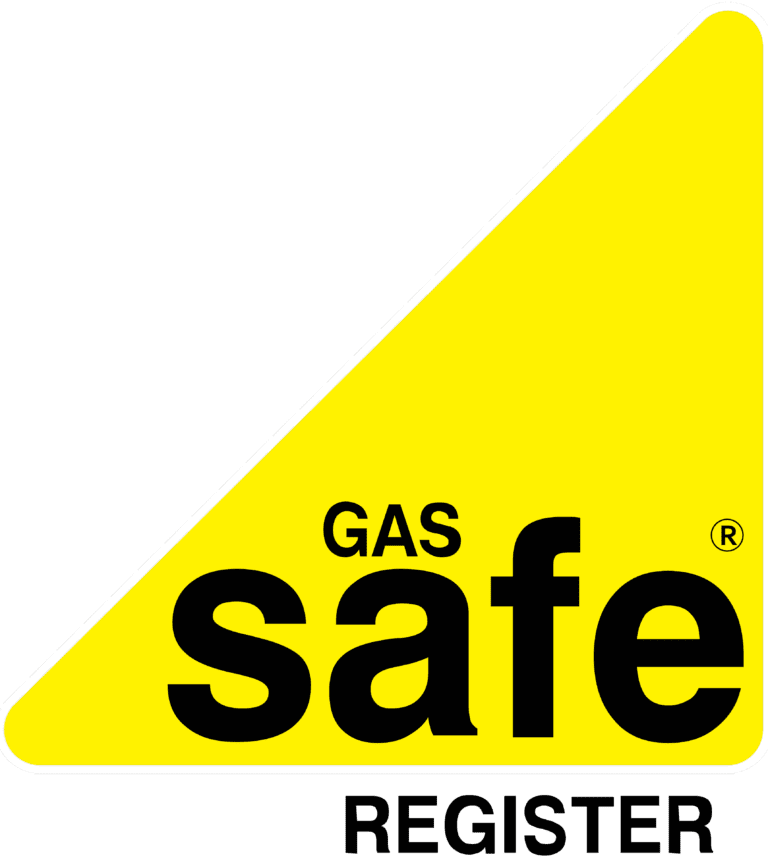When you have heating but no hot water it becomes a huge inconvenience. If your boiler seems to be the culprit, don’t despair. This guide will walk you through diagnosing and solving common boiler issues that affect hot water delivery.
What Kind of Boiler Do I Have?
Understanding your boiler type is a crucial starting point. Here’s a breakdown of the main types:
- Combi Boiler: The most common type. This boiler provides both heating and instant hot water on demand, without needing a separate water storage tank.
- System Boiler: Uses a hot water cylinder to store preheated water. Ideal for homes with multiple bathrooms and high hot water demand.
- Regular (Conventional) Boiler: These have a hot water cylinder and a cold water storage tank (usually in the loft). They’re less common in modern installations.
Why Is My Heating Working but Not My Hot Water?
Several factors can lead to a lack of hot water even if your heating works. Here are some frequent causes:
- Faulty Diverter Valve (Combi Boilers): This valve directs hot water to your heating radiators or your taps. A faulty valve can mean hot water never reaches your taps.
- Low Boiler Pressure: Boilers need optimal water pressure to function correctly. Low pressure can impede the hot water process.
- Broken Thermostat: A malfunctioning thermostat can prevent the boiler from recognizing the need for hot water.
- Airlocks in the System: Trapped air in your pipes or radiators can obstruct hot water flow.
What Are Some Other Common Causes of No Hot Water?
These problems can affect hot water in any boiler type:
- Frozen Pipes: During extremely cold weather, exposed pipes can freeze, blocking both hot and cold water flow.
- Boiler Fault: A broader boiler problem could be at play, preventing it from heating the water as intended.
- Issues with Internal Components: Worn or damaged parts like the heat exchanger, diaphragm, or sensors can impact the boiler’s ability to provide hot water.

I Have a Combi Boiler – What Specific Problems Should I Look For?
Combi boilers have a few unique potential issues that can affect hot water:
- Low Water Pressure: Low pressure in the incoming water mains impacts your combi boiler’s hot water performance. Check your water pressure and contact your supplier if it’s low.
- Problems with the Heat Exchanger: This key component heats water on demand. Buildup of limescale can block the heat exchanger and limit hot water production.
- Faulty Diaphragm or Sensors: These internal boiler parts are critical for detecting water flow and demand. If they malfunction, your boiler might not “know” to heat water when you open the tap.
My Boiler Isn’t Working – What Are the First Things to Check?
Here’s a quick troubleshooting guide before calling an engineer:
- Error Codes: Consult your boiler manual to understand any error codes that might be displayed.
- Pilot Light: If your boiler has a pilot light, ensure it’s lit. If not, relighting instructions are typically found in the boiler manual.
- Power Supply: Check that the boiler has power and hasn’t tripped a fuse.
- Boiler Pressure: Is the pressure gauge within the correct range? Consult your manual for the ideal pressure.
- Thermostat: Ensure it’s set correctly, and the temperature hasn’t been accidentally lowered.
Can I Fix My Boiler’s Hot Water Problem Myself?
Here are some things you may be comfortable attempting:
- Bleeding Radiators: This releases trapped air that could affect hot water circulation. Click here on how to bleed your radiators.
- Checking Thermostat Settings: Ensure nothing has been changed accidentally.
- Resetting the Boiler: Sometimes this solves temporary boiler glitches.
I’ve Tried the Basics, It’s Still Not Working, What’s Next?
If the above tips don’t help or you notice anything unusual (leaks, strange noises), it’s best to call a qualified heating engineer. DIY boiler repairs can be unsafe and further damage the system.
How Do I Know If the Diverter Valve Is the Problem?
Unfortunately, it’s tricky to diagnose a diverter valve issue confidently without technical knowledge. However, here are some signs:
- Lukewarm Water: Even when you’ve set the temperature high.
- Radiators Hot When Only Hot Water Is On: Indicates the valve is stuck mid-position.
- Strange Noises from the Boiler: A sign of internal component wear.
What If My Hot Water Pressure Is Low?
- Check Your Water Supplier’s Website: Sometimes there are known pressure issues in your area.
- Try Other Taps: If the low pressure is throughout the house, the problem likely lies with the mains water supply.
- Combi Boilers: A more complex issue could be within your boiler system. Contact a heating engineer.
Is My Boiler Under Warranty?
If your boiler is relatively new, a manufacturer’s warranty might cover the problem. Check your boiler’s documentation to see if you’re within the coverage period and what types of repairs are covered by the warranty.
When Should I Replace the Boiler?
If you have an older boiler with recurring problems, it might be time to consider a replacement. Here are some signs it’s time for a new boiler:
- Frequent Breakdowns: Constant repairs can become costly and inefficient.
- Rising Energy Bills: Older boilers become less efficient, driving up your energy costs.
- Age of Boiler: If your boiler is over 10-15 years old, a modern, efficient boiler can save on energy and offer worry-free reliability.
Important Reminders
- Always check your boiler manual. Instructions, troubleshooting tips, and error codes specific to your model are invaluable.
- Prioritise safety. If you smell gas or suspect a leak, turn off your gas supply and call an engineer immediately.
- Don’t attempt complex boiler repairs. Internal boiler work should always be left to a qualified gas-safe registered heating engineer.
- Regular boiler servicing is key. Annual maintenance can prevent major issues, ensuring your boiler operates safely and efficiently.
In Conclusion
While dealing with hot water issues is frustrating, following these steps can help you get back to enjoying hot showers and baths. Remember, if basic troubleshooting doesn’t solve the problem, calling a heating engineer is the safest and most reliable option.

